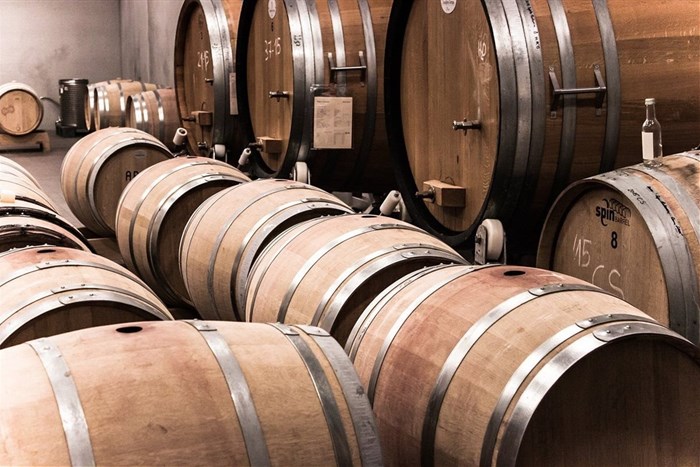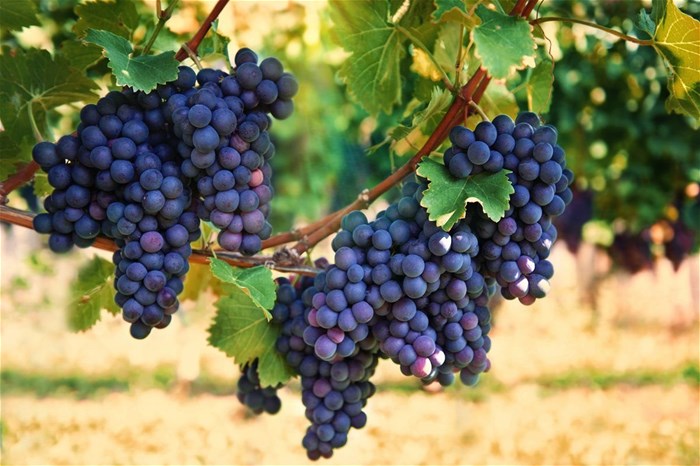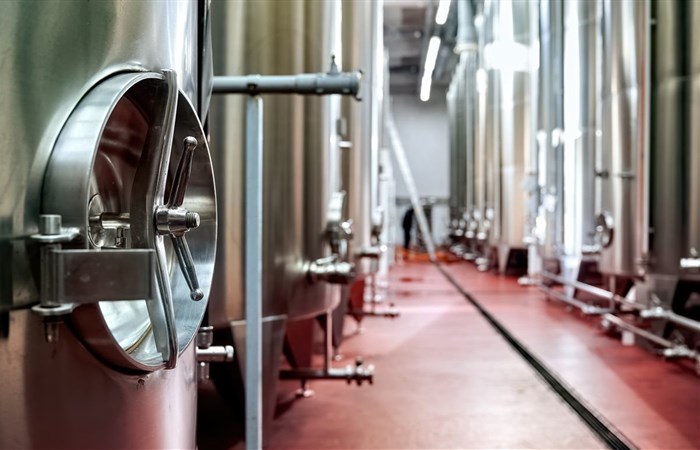
Source: Freepik
The wine industry is both one of the sectors of our agri-food system most affected by climate change and is also a small (if not insignificant) contributor to system-wide greenhouse gas (GHG) emissions.
The wine industry has faced criticism over its environmental, economic and social sustainability more generally. However, it is consumer purchase decisions (which wine do I buy?) which have the greatest potential to drive much needed systemic change to improve sustainability across the wine industry.
Bottling grapes
Conventional wine production is not inherently sustainable, degrading land, water and air while reinforcing social injustices and inequity.
Wine grape production is responsible for over 17 per cent of the sector’s GHG emissions, mainly through fossil fuel-powered machinery, while the application of pesticides, herbicides and fertilizers can reduce biodiversity, cause soil infertility and pollute local rivers and lakes.
Less visible are the social injustices experienced by many of the critical migrant workers employed during the grape harvest. In the 2023 harvest, two human trafficking investigations were launched in Champagne. Investigators discovered numerous undocumented workers living in squalid conditions describing their ordeal as being "treated like slaves".
Wine-making accounts for up to 81 per cent of sector-wide GHG emissions through electricity, chemical and water use. However, the emissions from glass bottle production and transport can also be a signifficant factor. Bottles can weigh from around 350 grams to almost 1,220 grams.
It’s estimated that more than half of the bottles used in the United States are shipped from China, crossing the Pacific Ocean before being filled and then distributed across the globe. The heavier the bottle, the more fossil fuels are required to transport them. Then once consumed, managing the waste creates further emissions.
Growing actions
The wine industry is responding to these challenges. In fact, Canada has been pioneering some of the important initiatives. For instance, the Liquor Control Board of Ontario (LCBO) is one of the world’s largest alcohol purchasers and requires that standard wine bottles (750 ml) sold through their stores weigh no more than 420 grams.
Both small and large producers in the U.S., France, and New Zealand are using lighter bottles to reduce their environmental impact and save money.
Wine writers are also playing their part, by beginning to add the bottle weight in their reviews. Reusing empty bottles can also significantly reduce emissions — more so than lowering bottle weight — and some countries are making significant progress in this regard.
Alternatives to glass bottles with lower carbon footprints do exist, including bottles made from polyethylene terephthalate (PET), paper bottles, boxed wine, wine on tap and aluminium cans. Unfortunately, customers can be hesitant to buy wine in these alternative formats, perceiving it to be of lower quality. Thus, consumer education is important.
While winegrowing using organic or biodynamic principles may in some cases promote greater sustainability, these account for only six per cent of vineyards.

Source: _LiliGraphie via Fotolia
Most wine producers employ more conventional grape growing methods, which in many cases are being adapted to create more sustainable practices. In the vineyard, these include using more disease and drought resistant grapes and rootstock, which require fewer chemical sprays and less water.
On the wine production side, many wineries — including here in Canada — are investing in geothermal systems for heating and cooling needs in the winery, significantly reducing electricity use. These initiatives are supported by the International Organisation of Vine and Wine (OIV) — whose 50 member states produce 87 per cent of global wine — which recently adopted a policy promoting general principles of sustainability across all production phases.
Other industry organizations such as International Wineries for Climate Action are focused on ways to reduce GHG emissions to net zero by 2050, while the Sustainable Wine Roundtable is an independent group seeking to advance sustainability across the wine value chain and transfer that information to the consumer.
Encouraging sustainability
However, these efforts to improve sustainability have been uneven and inconsistent, confusing consumers wanting to make an informed decision when purchasing wine.
Recent research from our lab has shown relatively limited consumer knowledge about sustainably produced wine, but equally a willingness to engage in many behaviours around the product, including buying more environmentally friendly wine, and paying more for both environmentally and socially responsible wines.
Interestingly, this is especially the case with younger wine consumers, who value sustainability considerations more than older generations when making purchase decisions generally.
Consumers seek easy ways to identify sustainable wine, such as clear visual cues on labels and trustworthy sustainability certifications. These considerations need to be priorities for the global wine industry as it seeks to respond to consumer demand, and address existential challenges to its long-term viability.
This article is republished from The Conversation under a Creative Commons license. Read the original article.





























